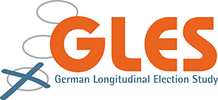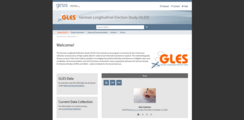Welcome to the GLES

The longitudinal survey programme for election research
The German Longitudinal Election Study (GLES) is the central survey programme in Germany for the continuous collection and provision of high-quality data for national and international election research. The methodologically diverse surveys of the GLES make it possible to investigate the political attitudes and behaviour of eligible voters and candidates. The GLES has been conducted in close co-operation between the German Society for Electoral Research (DGfW) and GESIS - Leibniz Institute for the Social Sciences since its inception.
What makes the GLES unique?
The various studies of the GLES - the GLES Cross-Section, the GLES Rolling Cross-Section, the GLES Panel, the GLES Tracking, the GLES Candidate Study and the GLES Nomination Study - enable analyses from a variety of perspectives. The data from the individual studies of the GLES can be combined to provide a holistic picture.
Temporal and geographical scope
The GLES studies have been conducted since 2009 during and between federal elections in Germany.
About us
The GLES is jointly organized by the GLES Team at GESIS and the GLES Coordination Group. Here you can find further information on the History of the GLES.
The GLES data are available in the GESIS search.
Here you can search for publications that use GLES data.
The overview provides orientation on the design of the GLES and the GLES studies.
Here you will find an overview of published GLES data and documentation.
Stay in touch with us through our mailing list, social media, or other channels.
Do you have any questions? The forum is for exchanging information.







